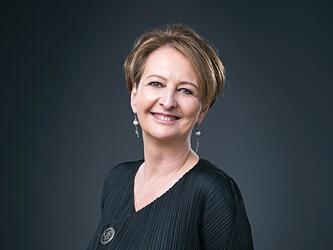Edwina Dunn in seven
1: What has been the most significant development in data science since you co-founded Dunnhumby?
In 2000, when I told the leader of a financial services organisation that data would become strategic, he laughed. Well, not only is it now fundamental, but it is also an essential management and decision-making tool. When we launched Tesco Clubcard, we were the first and only. A year later, Amazon declared its mission statement: ‘To be Earth’s most customer-centric company.’
2: What is the biggest hurdle organisations face in extracting value from data?
Knowing what you need to understand consumers and behavioural patterns takes time and experience. Data science is all about nudge behaviour – driving new actions and creating automated, intelligent triggers. It’s a combination of art and science, which requires knowledge of the way a business works, its quirks and operational limitations. Also, it’s important that your data science is able to tell you an ugly truth or two, not just what you want to hear.
3: Is loyalty still important?
Lazy organisations simply use sales to engage consumers, but they have become so widespread that many are now ignored. Consumers want good prices, but they want brands to understand what they love and why they chose them and not another. So brands need to show and earn the loyalty of their customers – not demand loyalty.
4: Which unexplored data sources excite you most?
For years, I’ve wanted to harness the insight of mobile phones and credit card/financial services. However, the proprietary nature of this data means any value has been highly restricted and slow to emerge. Open-data sources such as social media, by contrast, are global and sensitive to fast-changing trends, revealing consumer triggers that indicate aspiration, belief and purpose, not just behaviour. This data shows future intent, not just ‘the past’.
5: How can addressing data biases help with equality?
All data is biased. How it’s collected reflects the original purpose, not necessarily the new purpose of analysis and modelling. We should think about the data we need and not always solely from within our organisation. Most data scientists struggle with sparse or bland data, so finding a way to categorise ‘all people’ is the most balanced and valuable step forward. AI essentially builds in any inherent bias in the data or model, so filling the gaps in the ‘ground truth’ is a fundamental first step.
6: What role can research play in uncovering unheard stories?
The perfect combination of big data and market research is to use big data to understand behavioural patterns in a way that does not require special intervention or effort, and to use bespoke research to understand why people do what they do. In the past, representative samples have been applied in a way that removes any chance of using subsequent insight in direct communications. In new models, when samples are drawn from within known behavioural segments, significant and practical applications are unleashed.
7: What is the most inspiring story you’ve heard recently?
The Female Lead is using research to understand what holds back girls and women in life and careers. Instead of asking clichéd questions around ‘glass ceilings’, we’re running hour-long interviews to understand motivation and beliefs through a structured conversation. The response and evident trust from women, combined with clear frustration and appetite for change, is breathtaking. There are big changes afoot as households are thrown together in a work and home-life environment for the first time in decades, and it seems evident that working life and consumerism will probably be redefined. I can’t wait to share these new stories.
This article was first published in the July 2020 issue of Impact.

We hope you enjoyed this article.
Research Live is published by MRS.
The Market Research Society (MRS) exists to promote and protect the research sector, showcasing how research delivers impact for businesses and government.
Members of MRS enjoy many benefits including tailoured policy guidance, discounts on training and conferences, and access to member-only content.
For example, there's an archive of winning case studies from over a decade of MRS Awards.
Find out more about the benefits of joining MRS here.













0 Comments